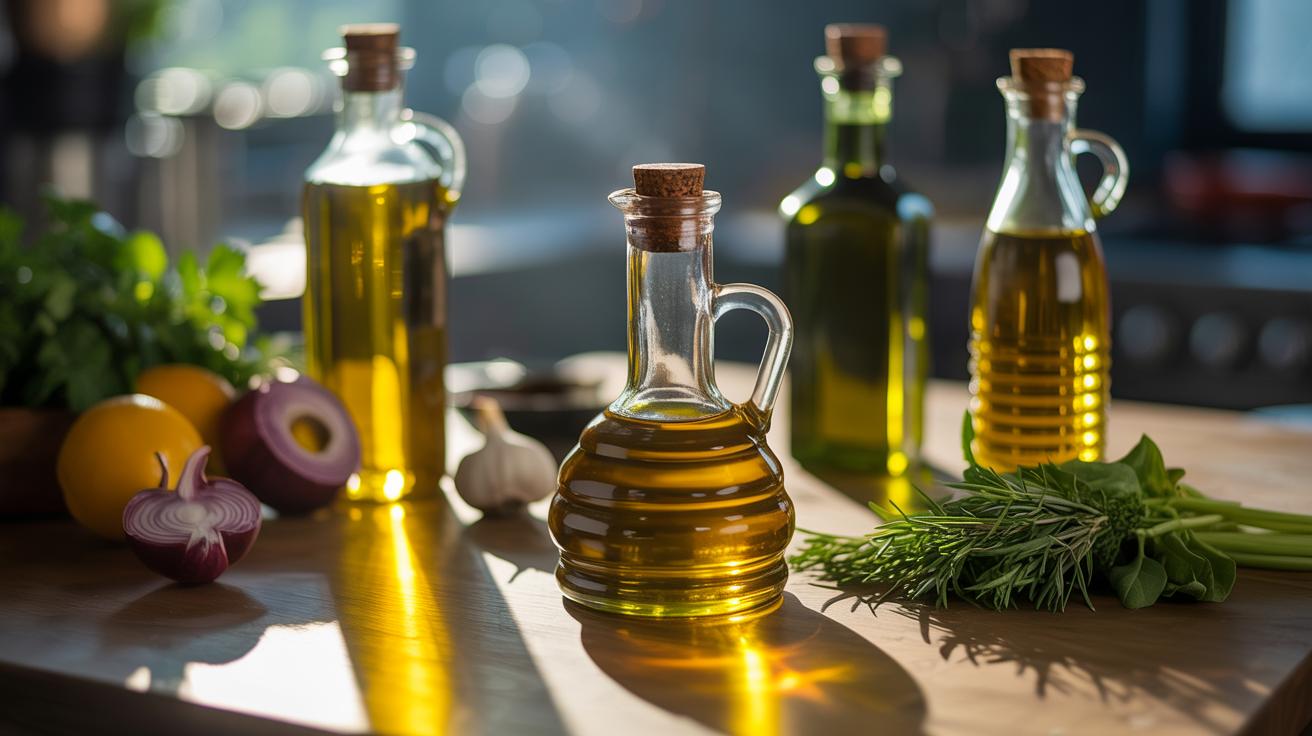What You Need to Know
- 🔥 Health Alert: Recent studies reveal that commonly used seed oils, such as soybean and sunflower, could lead to liver and kidney damage when overheated or reused.
- ⚠️ Hidden Dangers: High levels of omega-6 fatty acids in these oils can trigger inflammation and oxidative stress, which are precursors to serious liver conditions.
- 🚫 Reheating Risks: Reusing cooking oils can result in the formation of toxic compounds, posing additional health risks and potentially doubling the risk of fatty liver disease.
- 💡 Healthier Alternatives: Opt for extra-virgin olive oil, avocado oil, and cold-pressed sesame oil to reduce health risks and support better liver function.
- 🔄 Smart Kitchen Practices: Avoid reheating oils, stay below smoke points, and choose minimally processed oils to promote overall wellness and longevity.
In every American kitchen, the bottles of cooking oil lined up on the counter are seen as staples of culinary creation. From sunflower to canola, these oils are often perceived as healthy, everyday choices. However, recent research suggests that these seemingly innocuous ingredients could be causing more harm than good. When overheated or reused, these oils may contribute to liver and kidney damage, raising concerns about their long-term impact on health. As we delve into the science behind these oils, it’s crucial to understand how they transform from beneficial to potentially harmful, and what alternatives might offer safer, healthier options.
The Hidden Dangers of Seed Oils
Seed oils such as soybean, corn, and sunflower have long been praised for their plant-based origins and low saturated fat content. However, these oils are high in omega-6 fatty acids, which, when consumed excessively, can trigger inflammation and oxidative stress. This is particularly concerning for the liver, as these conditions are known precursors to non-alcoholic fatty liver disease (NAFLD). The liver, responsible for over 500 essential functions, is severely impacted by chronic inflammation.
Moreover, when these oils are overheated or reused, they become unstable and break down into toxic compounds like aldehydes and lipid peroxides. These compounds can damage liver cells, impair DNA repair systems, and contribute to fibrosis and liver disease. The kitchen staple that once seemed harmless could be a silent contributor to serious health issues. Understanding the risks associated with seed oils is the first step towards making more informed choices in the kitchen.
Reheating Oils: A Recipe for Disaster
The practice of reusing cooking oil is common in many households, often seen as a way to reduce waste. However, research indicates that repeatedly reheating oils can be detrimental to health. A study from 2021 found that consuming oil reheated multiple times led to visible damage in the liver, kidneys, pancreas, and gut tissue. The study highlighted elevated liver enzymes and oxidative stress markers in test subjects, underscoring the potential harm of this practice.
Furthermore, exposure to cooking fumes from reheated oils poses additional risks. Women exposed to these fumes in environments like fast-food kitchens have shown a doubled risk of developing fatty liver disease. These findings emphasize the importance of avoiding the reuse of cooking oils, urging consumers to adopt safer cooking practices. By understanding the implications of reheated oils, individuals can take proactive steps to protect their health and well-being.
Healthier Alternatives to Common Cooking Oils
While the risks associated with certain seed oils are concerning, not all oils are created equal. Extra-virgin olive oil, rich in monounsaturated fats and antioxidants, is a healthier option for cooking. Studies link olive oil usage to improved liver health and reduced mortality rates, making it an excellent choice for salad dressings and low-heat cooking. Similarly, avocado oil, with its high smoke point, offers a robust profile of healthy fats.
Other oils, like cold-pressed sesame, flaxseed, and walnut oils, provide additional benefits due to their high omega-3 content and antioxidants. These oils are best used raw to maximize their health benefits. Even virgin coconut oil, with its medium-chain triglycerides, can support metabolism when used sparingly. Choosing the right oils can significantly impact overall health, offering a path towards better nutritional choices and reduced health risks.
Practical Steps for Oil Usage
To minimize health risks, it’s essential to adopt practical strategies when using cooking oils. Firstly, avoid using heated seed oils for everyday cooking. Instead, opt for oils like olive or avocado, which offer healthier profiles. Secondly, resist the temptation to reuse oils, limiting their use to one or two batches at most. Thirdly, mind the cooking temperature; staying below the smoke point ensures oils remain stable.
Additionally, pay attention to packaged foods, as many processed products contain unclear “vegetable oil” labels, often indicating heated seed oils. Investing in cold-pressed and minimally processed oils, though potentially more expensive, can yield long-term health benefits. These steps not only support liver and kidney health but also promote overall wellness. By making informed decisions in the kitchen, consumers can safeguard their health against the silent dangers lurking in everyday cooking oils.
The need for awareness about the oils we use in our kitchens is more critical than ever. As research continues to illuminate the potential health risks associated with certain cooking oils, individuals have the opportunity to make informed choices that support their well-being. By embracing healthier alternatives and mindful cooking practices, we can mitigate the dangers posed by these ubiquitous kitchen staples. How will you adapt your cooking habits to prioritize health and longevity?
Did you like it?4.4/5 (27)







9 comments
LukeMystic
Does anyone have a favorite brand for cold-pressed oils? Recommendations welcome! 🥑
lauren
Ah, I see. Can I use extra-virgin olive oil for frying, or is it best only for salads?
David
This is really eye-opening. How often do you recommend replacing cooking oils?
Jane
Thanks for the heads up! Will definitely try avocado oil next time. What’s the best way to store these oils?
Luna
My grandma has been using the same oil for years, and she’s healthier than me! Maybe she’s just lucky?
nora
Can someone tell me how to properly dispose of used cooking oil? I’ve been just pouring it down the drain!
WyattTranquility
So, are we saying our kitchens are basically health hazard zones now? 😆
elijah
Does this mean I should throw away my sunflower oil? What do you suggest for high heat cooking?
Ayden5
Wow, I had no idea about the risks of reheating oils! Thanks for the info. Time to switch up my cooking habits.